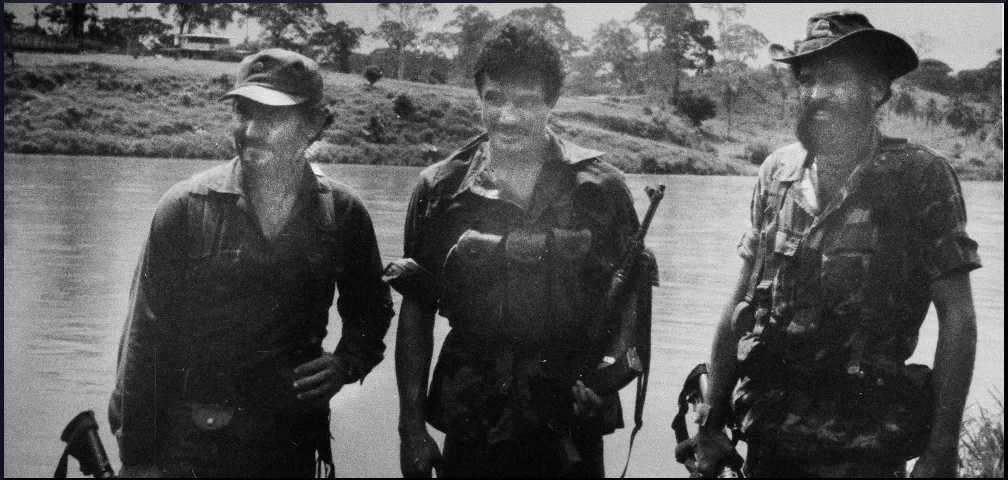by Dan Kovalik, published on Tortilla Con Sal, June 26, 2023
It has now been 37 years since the landmark decision of the International Court of Justice (ICJ) in the case of Nicaragua v. United States. Seven different US Presidents, some Republican and some Democrat, have sat in the White House since then. Yet sadly, the debt owing on that decision has yet to be paid.
The legal case of Nicaragua v. United States, the brainchild of Father Miguel d’Escoto, is emblematic of the over 150-year struggle of Nicaragua for independence from the grasp of the US Empire. Nicaragua, a tiny and relatively poor nation, has been fighting valiantly against the much bigger and greater power of the US which has obsessively sought to bring Nicaragua to heel. Incredibly, Nicaragua always finds a way to come out on top, whether in ousting the US Marines from its land in 1933, overthrowing the US-backed dictator Somoza in 1979 or defeating the Contras in the 1980’s. It is the latter battle which is the subject matter of the ICJ case.
In 1984, Nicaragua brought the US to court for organizing, training and supporting the Contra forces which would terrorize Nicaragua for nearly a decade and ultimately lead to the death of 30,000 Nicaraguans. On top of its Contra war against Nicaragua, the US also mined Nicaragua’s harbors, destroyed Nicaraguan oil installations and imposed an economic blockade upon the country. Nicaragua challenged all of these misdeeds before the ICJ.
Ultimately, Nicaragua, as per usual, prevailed against the US, obtaining a sweeping judgment which condemned the US for its substantial crimes against Nicaragua and its people. The ICJ ordered the US to stop its war against Nicaragua and to compensate Nicaragua for all of the losses that war had cost the latter. This decision was not only a triumph for Nicaragua, but it also should have marked a triumph for international law and the UN Charter which created the ICJ and which memorialized the understanding that all nations all sovereign and equal despite their relative size, wealth or military might.
Sadly, though, the US’s response to the ICJ case and decision ended up marking a huge and historic defeat for international law. This is so because the US, deciding that it had the power to ignore the jurisdiction and authority of the ICJ – this despite the fact that the US helped draft the UN Charter which created this court – refused to even show up to the court on the merits and ultimately refused to recognize or honor the ICJ’s decision and award. The US’s message was clear – international law applies only to the weak and not the strong. Of course, in such an event, there is no international law at all, for a law which does not apply to the weak and the strong alike is no law at all.
Not only did the US Executive, then led by President Ronald Reagan, flout international law, it also flouted US law. Thus, while the ICJ decision played a huge role in the US Congress deciding to outlaw US support for the Contras, the Reagan Administration decided to continue funding and arming the Contras anyway. And the means the Administration chose to do this were particularly lawless and heinous. Thus, the White House chose to engage in cocaine trafficking to its own people and to illegally sell arms to Iran during the height of the brutal war with Iraq, which the US was also arming, to obtain funds for the Contras. This would come to be known as the Iran-Contra scandal.
In short, the US took the occasion of the case of Nicaragua v. United States to make a public mockery of both international and domestic law and to establish an unjust world order. Reagan’s successor, George H.W. Bush, would announce this “New World Order” in 1990 after unilaterally invading Panama in 1989 for its sin of refusing to continue serving as a staging ground for the Contras. Bush would then punctuate his “New World Order” speech – a speech which made clear that the US was now the sole power in the world in the absence of the socialist bloc which was collapsing – by invading Iraq.
While the case of Nicaragua v. US therefore could be said to stand as a monument to the grave defeat of the law, I am writing this at a time when the “New World Order” is dying, and when a multi-polar world is being born. The chance for now reviving a more just world, governed by the law rather than by the sword, is now possible. And little Nicaragua, which has risen from the ashes of the long 1990’s which saw the Sandinistas electorally defeated and a series of neo-liberal governments come to power, will continue to play an important, leading role in advocating for such a just world order.
And so, I end this reflection with a strong feeling of hope for the future, and has many times been the case in my life, it is Nicaragua and the Sandinistas which help to give me such hope.
*Featured Image: U.S. backed Nicaraguan rebel leader stands with guerrilla fighters with in their camp in southern Nicaragua, 1983. The rebel, trained, armed and funded by the CIA, formed to overthrow the Nicaraguan Sandinista government. (AP)
Daniel Kovalik is an international law attorney and professor living in Pittsburgh, USA
